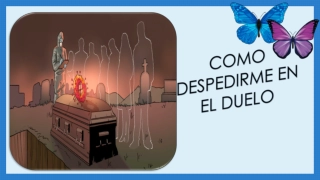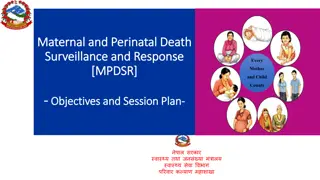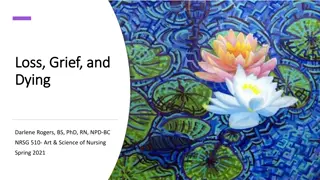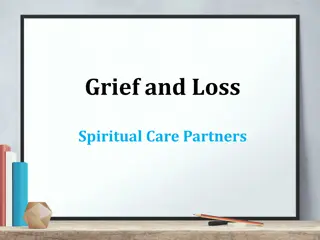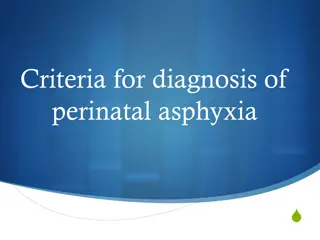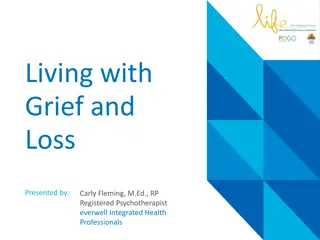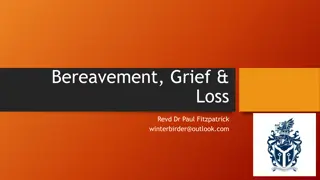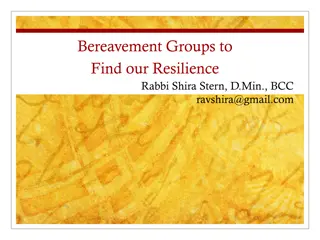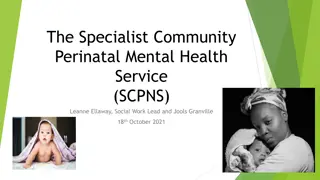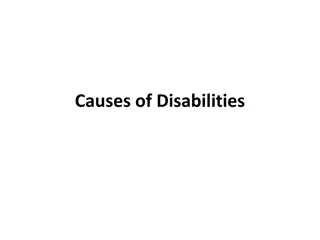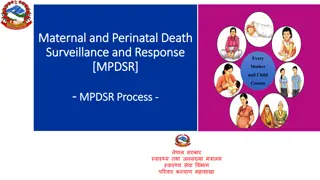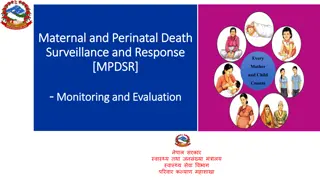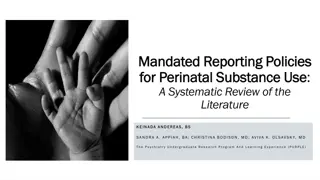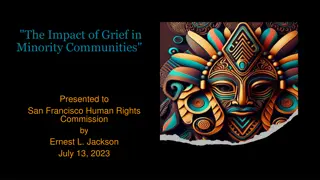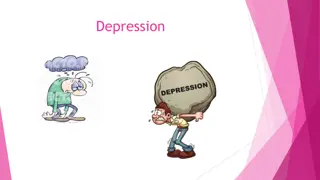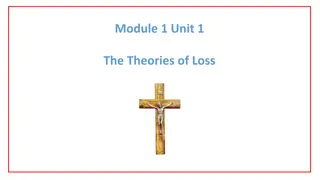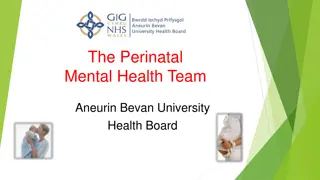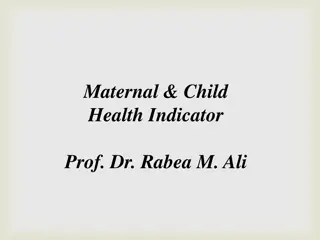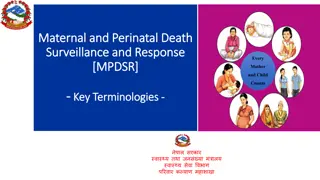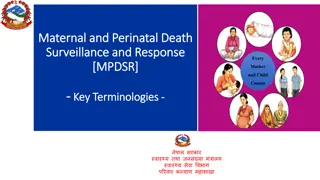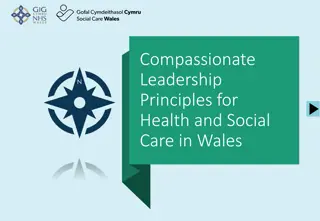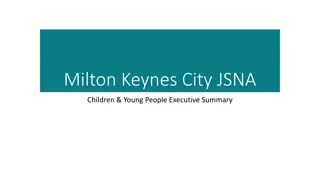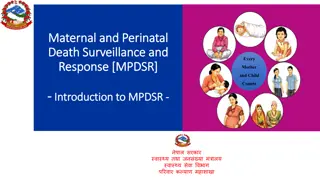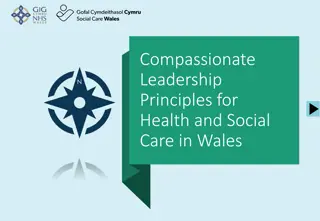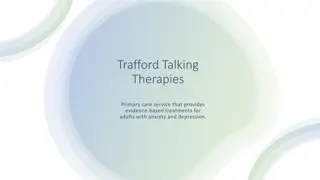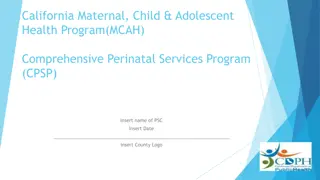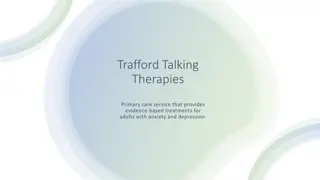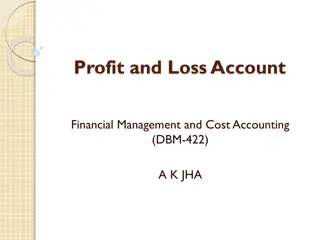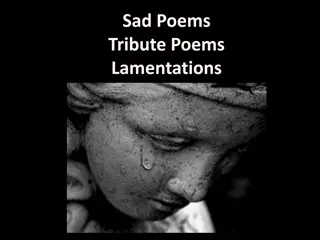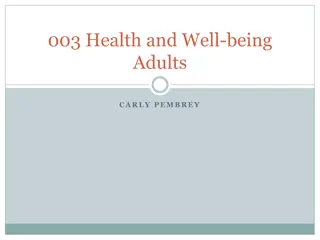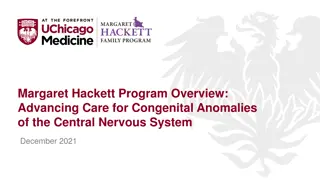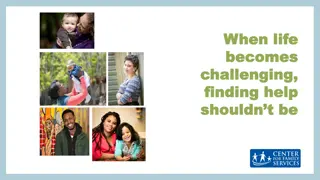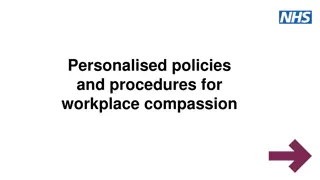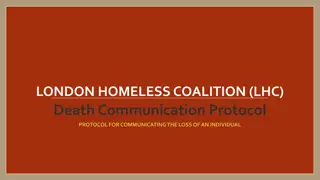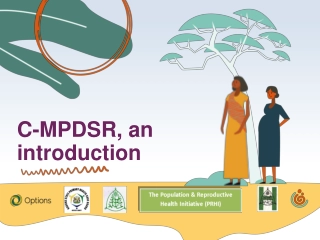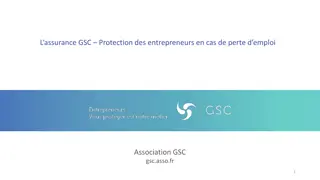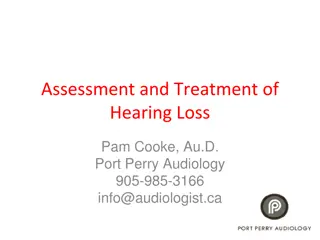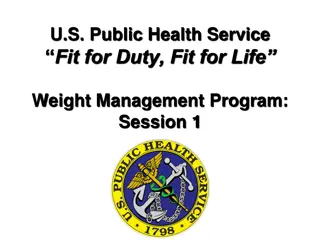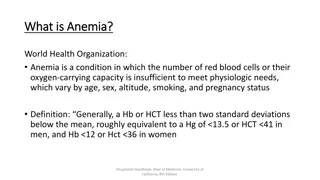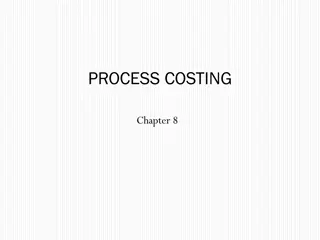Understanding Perinatal Loss and Grief: A Compassionate Approach
Exploring the sensitive topic of perinatal loss, this presentation delves into the emotional complexities faced by parents dealing with stillbirths and neonatal deaths. Covering issues in bereavement counseling, factors influencing grief reactions, and the cultural impact of loss, it offers insights and support for those navigating this challenging journey.
Download Presentation

Please find below an Image/Link to download the presentation.
The content on the website is provided AS IS for your information and personal use only. It may not be sold, licensed, or shared on other websites without obtaining consent from the author. Download presentation by click this link. If you encounter any issues during the download, it is possible that the publisher has removed the file from their server.
E N D
Presentation Transcript
Losing My Baby, Losing Part of Myself Jo Naylor www.bacp.co.uk
Sensitivity to Self I recognize that some of you may have experienced a perinatal loss, another loss or have a grieving friend or family member. I understand that grief emotions may arise at unexpected times; I understand if you need to take a break for self care. If you need to talk more about your own experience, please find me after my presentation.
By the end of this presentation We will cover: Issues arising in bereavement counselling for parents who have experienced a stillbirth or neonatal loss Factors leading to a complicated grief reaction for parents Gender differences and similarities in grieving for a perinatal loss Potential impact of loss on a couple s relationship Impact of culture, spirituality and community on perinatal loss
Meaning making What do the following pictures mean to you? (Please refer to the video)
Definitions A stillborn baby is one who has died before or during birth at or after 24 weeks of pregnancy. A neonatal death happens in the first 28 days after birth. A death in the first seven days is called an early neonatal death. Stillbirths and early neonatal deaths are sometimes referred to as perinatal deaths.
Scale of Stillbirths and Neonatal Death The MBRRACE-UK report focuses on rates of stillbirth and neonatal death across the UK for babies born at 24 weeks of gestation or more. The report found that in 2016 the stillbirth rate was 3.93 per 1,000 total births, a fall from 4.20 per 1,000 total births in 2013 Around 15 babies died before, before, during or soon after birth every day in the UK in 2015.
Historical Background For decades parents were separated from their stillborn baby or dying baby in the belief that grief could be prevented if no attachments were formed. Facilitating grief process by allowing parents to create memories with deceased baby such as seeing and naming baby (Lewis & Page,1978).
Long Term Psychological Outcomes Complicated (prolonged)grief 20% Women have significant levels of depression and anxiety after 12 months Guilt Self blame 20% Women experience PTSD in subsequent pregnancy Gravensteen et al 2013
Traumatic Stress One in three women presented with clinically significant levels of Post Traumatic Stress Syndrome 5-18 years after their stillbirth Negative social support may contribute to maintenance of PTSD symptoms Gravensteen et al 2013
From Grief, Guilt, Pain and Stigma, to Hope and Pride Systematic review and meta-analysis Negative psychological symptoms Disenfranchised grief Incongruent grief Conflict over decision-making Parental pride Burden et al, 2016
Disenfranchised Grief Grief persons experience when they incur a loss that is not or cannot be openly acknowledged, publicly mourned, or socially supported Doka, 1989
Mothers Accounts of Stillbirth Experiences Interpretative Phenomenological Analysis (IPA) Broken canopy Questioned self and changed world view-world may not be safe How did this happen? A continuing bond my baby existed after all, betrayal Longing and need to acknowledge continuing bond Am I the culprit? Ustundag-Budak et al, 2015
To Hold or Not to Hold, that is the Question Not seeing/holding baby lowers rates of depression in subsequent pregnancy and lowers PTSD rates (Hughes et al, 2002). NICE(2007) guidance changed not to encourage mothers to see/hold baby. SANDS,UK campaigned for parents right to be offered to see/hold baby. Positive effect holding baby after 37 weeks gestation.
Impact of Counselling for Perinatal Loss No robust studies have been undertaken in the area of perinatal loss to determine the effect of grief counselling or psychotherapy on parental grief. Koopmans et al, 2013
Losing My Baby: Losing Part of Myself The unborn child is carried in the woman s body and is probably perceived by many pregnant women as being part of themselves.
Mothers Perspective I ve lost a part of myself. And I ve lost all the dreams I had for us together. We will never get to bake cakes, have girly days together? How will my friends and family view me now? How will I cope when someone I know gets pregnant? How will I feel when I see someone else with a baby?
Fathers Perspective After the funeral I felt a part of me just couldn t carry on. The other part just wanted to block out the pain. I went back to work but I just couldn t concentrate. I didn t see the point. Who can I talk to about this? I m supposed to be the one to support my partner, how do I do that when I feel like this?
Siblings My son started school this week. He said there was a girl in his class called Amy. And he said, Mummy we ve got a baby called Amy too, haven t we, Mummy? I just broke down. We have always talked to our son about his twin baby brothers who didn t survive. When he drew a picture at school of our family, he included the twins. The class teacher thought he was making it up.
Wider Family & Friends My parents said, when he died, it was for the best. No more suffering, they said. My close friend chose not to tell me about her pregnancy as she didn t know how I would take it. I ve heard my Mum and Sister talking, when they think I m not listening, they say, I should just have another baby to get over this .
Relationships We coped in different ways. I wanted to talk about Jack all the time. He was silent. I think he was trying to be strong for me. I am not ready to be intimate at the moment but he doesn t understand and keeps pressuring me. I m worried that I might not be able to have another baby and that my partner will leave me if I can t.
Paradoxical Parenting Bereaved parents relationships with subsequent children Delayed Attachment Holding close/Holding at arms length In control/Out of control Loss of Perspective/Sense of Empowerment Checking/Pragmatic Warland et al, 2010
Implications for practice pt.1 Culture, faith, beliefs Assessment Do you have any kind of faith or spirituality that is important to you? In your community how is a stillbirth or neonatal death handled?
Implications for practice pt.2 Assessment Number of pregnancies, Outcomes Ectopic pregnancy Miscarriage Termination, termination for foetal abnormality Birth trauma Stillbirth, Neonatal death
Implications for practice pt.3 What do we bring as counsellors? Our perspective of attachment Our perspective of post traumatic stress Our experiences of perinatal loss, personal or family or friends
Implications for Practice pt.4 Identity as a parent Can I find myself again?
Implications for practice pt.5 Challenges When counsellor is a parent Baby loss defies natural order of life When parents feel guilty When parents feel angry When there are pre-existing difficulties
Implications for practice pt.6 Future intervention approaches should involve male partners, including them in psychotherapy and ensuring an ongoing dialogue between the grieving parents. Kersting & Wagner,2012
Bibliography Lewis, E. and Page, A., 1978. Failure to mourn a stillbirth: an overlooked catastrophe. British journal of medical psychology, 51(3), pp.237-241. Gravensteen, I.K., Helgad ttir, L.B., Jacobsen, E.M., R destad, I., Sandset, P.M. and Ekeberg, ., 2013. Women's experiences in relation to stillbirth and risk factors for long-term post-traumatic stress symptoms: a retrospective study. BMJ open, 3(10),p.e003323. Burden, C., Bradley, S., Storey, C., Ellis, A., Heazell, A.E., Downe, S., Cacciatore, J. and Siassakos, D., 2016. From grief, guilt pain and stigma to hope and pride a systematic review and meta-analysis of mixed-method research of the psychosocial impact of stillbirth. BMC pregnancy and childbirth, 16(1), p.9. Doka, K.J. and Aber, R., 1989. Psychosocial loss and grief. Disenfranchised grief: Recognizing hidden sorrow, pp.187-198. st nda Budak, A.M., Larkin, M., Harris, G. and Blissett, J., 2015. Mothers accounts of their stillbirth experiences and of their subsequent relationships with their living infant: an interpretative phenomenological analysis. BMC pregnancy and childbirth, 15(1), p.263. Hughes, P., Turton, P., Hopper, E. and Evans, C.D.H., 2002. Assessment of guidelines for good practice in psychosocial care of mothers after stillbirth: a cohort study. The Lancet, 360(9327), pp.114-118. Koopmans, L., Wilson, T., Cacciatore, J. and Flenady, V., 2013. Support for mothers, fathers and families after perinatal death. Cochrane database of systematic reviews, (6). Warland, J., O Leary, J. and McCutcheon, H., 2011. Born after infant loss: The experiences of subsequent children. Midwifery, 27(5), pp.628-633. Kersting, A. and Wagner, B., 2012. Complicated grief after perinatal loss. Dialogues in clinical neuroscience, 14(2), p.187.


